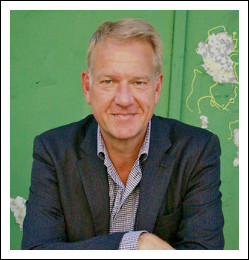Soon, all your base are belong to us, anyway.

Malmö, March 2017
When we go to work on the other side of the fence, doing work for hire outside 'real' games, we also bring our tools, skills and ideals to bear on something else. This is not failure, this is our industry asserting influence over another medium or industrial field. And this is my point here: Let's do this consciously from now on, or someone else will do it for us and reap the rewards.
(This is meant as sort of a free-standing sequel to my previous rant, here, on bending or breaking.)
If we don't do this, take control of our industry's development, less capable people will deliver lower quality, still take all the money, leave us sidelined with no influence, and droves of unhappy customers in their wake. I'd actually go as far as saying that this is why serious games have not yet come very far in general, with very few notable exceptions. For one thing, we don't quite know what they are, other than that they are not primarily about entertainment. For another, they are made by people that would rather do entertainment games, but have not been very successful at that.
I do know what I'm talking about here, as I started out with advergames 20 years ago, and have lost money on all the 'real' games we've made. But then entrepreneurship is probably much more about perseverance than talent. At least in my case...
Another word for learning is gami§!@%tion
Anyway, there is substantial knowledge transfer by highly talented people fleeing, through no fault of theirs, failed games companies, not seldom strongly encouraged by spouses preferring that they get 'proper jobs'. However, this leaves the profits, the value extracted from these hard-earned skills, in other industries, as well as the influence over their further use.Gamification has an enormous potential for everything. It's not only about manipulating your sales force with leaderboards and badges. Because mammal-style learning is so much more than just carrots and sticks. It surely is really about experience and enlightenment? Even if it's still play. Seen from that angle, gamification does not have to be such a dirty word anymore.
A country always has an army – its own or someone else's
During the last ten or fifteen years, I've seen real progress, and been part of the maturing of an industry. We've evolved from the basic four 'P's' of market competition (the product, its price, the place where you sell it and how you promote it), adding not only more complex products and payment schemes, but we also started staff poaching, and using patents, brands and lawsuits against each other. I thought the pinnacle was industry organisation; banding together for lobbying government for help against competition from other countries, other continents. As in when we formed the EGDF - the European Games Developer Federation, to have our own voice in Brussels. There certainly were at that time (and still are lots of) people more than happy to speak on our behalf, but they're other people: Film people. 'Creative industries' spokes-persons. Games publishers.A few years ago I started thinking that trying to organise our own financing, creating VC and other funds run by developers, that would be the end of it. That still is really a challenge, but not what we're meant to do. The crowning achievement will be when we, conscious of ourselves, our strengths and abilities, and with a clear voice in politics, take responsibility for our impact and our potential. When we understand and control the way our products influence how humans play, learn, communicate, interact and work - how we are, right now and for the future, changing what it means to be human.
To exert that influence we need gather our forces and be aware of the players and the pieces or props on the playing field, regionally, nationally and on your continent. This includes our industry organisations. If you don't like what they are doing, just pay the fee and then go protest at the annual general meeting. Or start another organisation.
Scheve schoenen in Scheveningen
A conspiracy needs to be secret, by definition, for it to succeed. But we're still so much about kids and play, and don't get taken very seriously outside our own industry, other than financially, so I think we're safe for the time being. Our secrecy could resemble the passphrase of the Dutch resistance: Everybody knows it, but only the natives can pronounce it well enough not to get shot.A conspiracy needs a clear goal, and which is something we need to discuss. And a conspiracy does need at least two people, per definition. So, who might these 'we' be, then? Well, that sort of depends on whether you're in or out, doesn't it?
So, let's band together to take control of our destiny. I suggest we say to all the slick suits, money men, 'creative industry' bullshit artists, and self-important professors out there, those that talk at length about the importance and future potential of games, but don't play them: Stand back - we're coming through.
Yours,

(Click here for suggested sound track on Spotify.)
